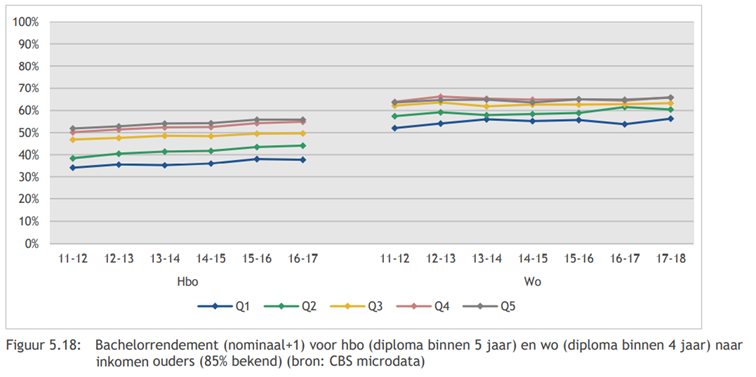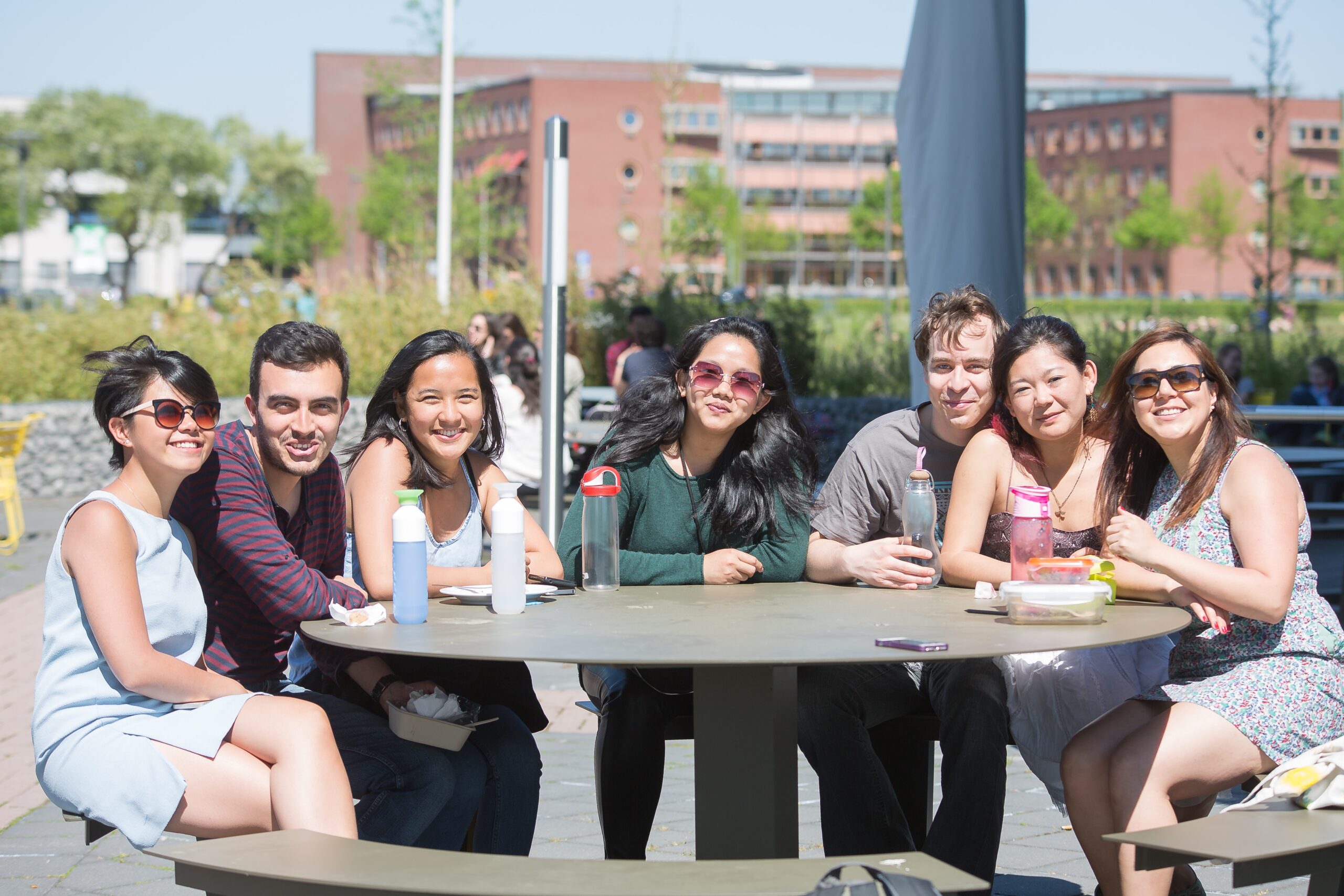Students from affluent families are more likely to graduate on time than students from disadvantaged families.
This is one of the topics in the Policy Monitor the ministry has submitted to the house of representatives. In the report, research agency ResearchNed illuminates various consequences of the government education policy, insofar as they are visible,
Once young adults have started their university education, their family income appears to be even more important than the parents’ level of education. According to the researchers, the latter has no effect on timely graduation.
Particularly in university colleges
Financial discrepancies, on the other hand, do have an effect. Particularly for university college students. Students from the two highest income brackets (upwards of some 70,000 euros according to statistics authority CBS) graduate with no more than one year of delay in 55% of the cases. Among students from low-income families (under 27,000 euros), this percentage is less than forty.
This gap is also apparent in university education but less poignant. In the bachelor programmes, where approximately 60 per cent graduate within four years, the difference is approximately ten percentage points.

Caribbean
Origin also affects the success rate. Students from the Caribbean areas in the Dutch kingdom graduate from university colleges with no more than one year of delay in only 22 per cent of the cases. This percentage is 36 among students with a non-western migration background, while students with a western or Dutch background graduate with less than a year delay in 52 per cent of the cases.
Caribbean students fare better at universities. Just under half graduates reasonably on time. The differences between students with a western and non-western background have vanished, and their graduation rate is equal.
Men and women
There is also a discrepancy between men and women. At university colleges, over 40 per cent of the men graduate within five years (and thus, with no more than one year of delay), while this is the case for 60 per cent of the women.
The gap between men and women is smaller at universities. Still, 70 per cent of the men obtain their bachelor’s degree within four years, against over 80 per cent of the women.

 Photo Shutterstock
Photo Shutterstock 

